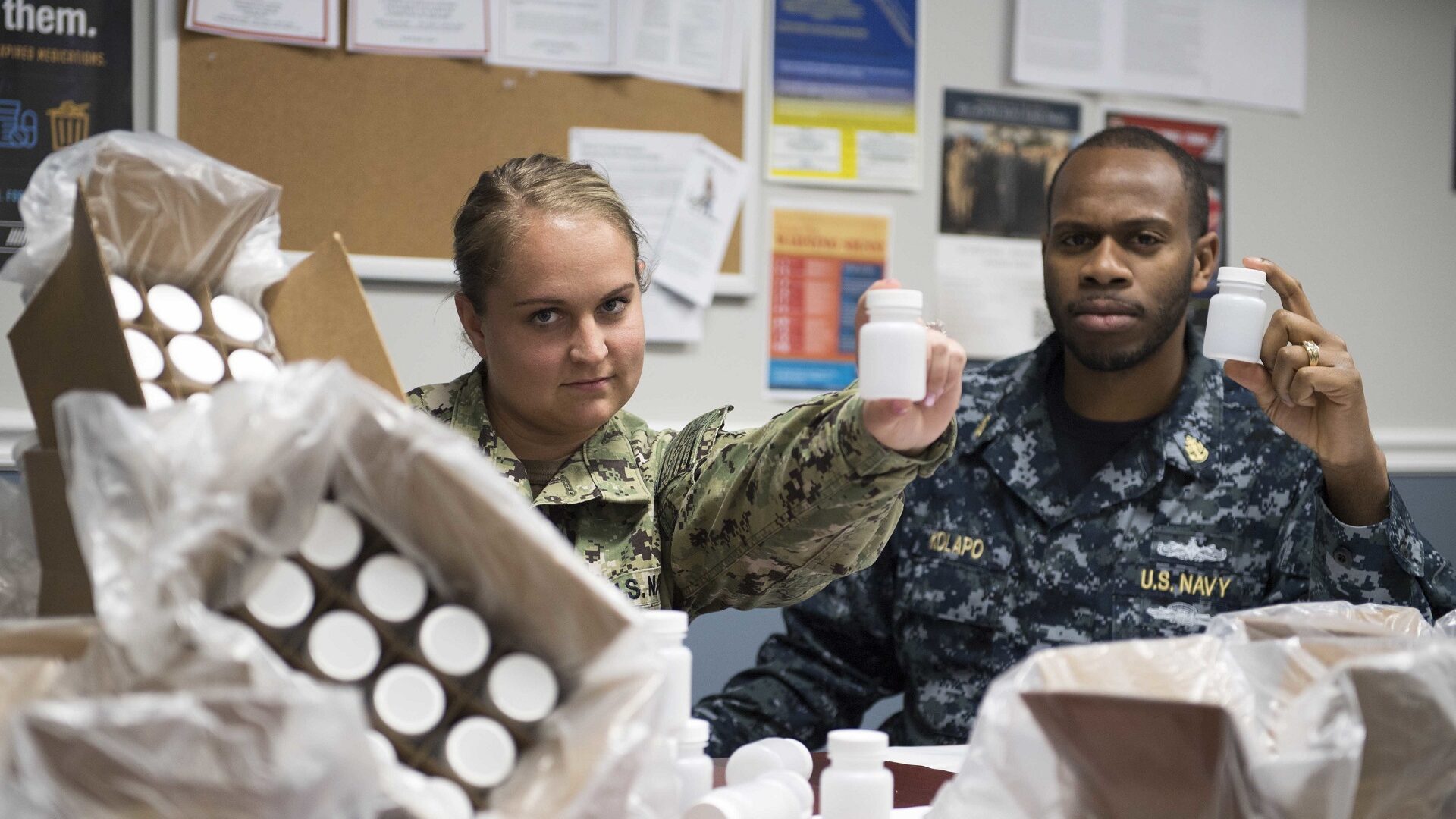

As our lives begin to return to a pre-pandemic version of normalcy, old routines are being brought back. For the Navy, that means ordering sailors to line up neatly outside of the nearest head — the bathroom — as they wait their turn to pee in front of someone else.
That’s right, piss tests are back! (If you’re a chief petty officer reading this, then that exclamation point might signify genuine excitement. If you’re a junior enlisted sailor who’s been spending a lot of time hanging out like you’re back on the block in a weed-legal state, then it probably signifies a great deal of alarm. Pro tip: Drink lots of water, run often, and wait till you get out to smoke that sticky icky.)
As Patricia Kime reported for Military.com, the Navy issued a service-wide message on May 21 that canceled a previous order from March 2020 that gave commanders some flexibility when it comes to conducting drug tests. This allowed them to reduce the number of sailors tested, reduce the frequency of urinalysis tests, or to pause them altogether.
Now, thanks to a service-wide directive, that’s all been flushed away.
Related video: McConnell Drug Demand Reduction Program
Prior to the novel coronavirus (COVID-19) pandemic, the Navy conducted random urinalysis tests roughly four times a month, sampling a small portion of a unit at a given time, Military.com reported. The drug tests target illicit drugs, as well as those that fall into a legal grey area, like marijuana which can be prescribed medically, or used recreationally in some states. Since they are working for the federal government and pot remains a schedule 1 substance under federal law, service members are barred from using the drug regardless of state law.
According to the message, the “cancellation aligns with the Centers for Disease Control and Prevention (CDC) announcement supporting the safe return to many activities halted during the pandemic. Additionally, maintaining a robust and drug-free workplace is Navy’s best deterrence to misuse of illicit and prescription drugs.”
Commands will return to “normal testing procedures and requirements,” though if they cannot due to restrictions stemming from the COVID-19 pandemic, they must inform those higher up in the chain of command of their reasoning. Additionally, commanders “shall not recall individuals who are restricted in movement or quarantined, except in cases of probable cause, or as determined by the commanding officer in consultation with local judge advocate general officer,” reads the message.
The message also explicitly states that “all participants should engage in safe hygiene practices, which may include wearing a mask, hand washing, maintaining social distance and refraining from touching their face or as stated in reference.” That last part — not touching your face after taking a leak, is just good practice all around.
In fact, a surprisingly large portion of the message focuses on hygiene and directs those administering the tests to “wipe down all surfaces contacted” to include tables, faucets, and door handles and requires that someone be assigned the sole duty of checking every bottle cap for tightness.
Given the pandemic, a lot of this makes sense, but it also makes me wonder: Were people not doing this before?
Feature image: Information Systems Technician 2nd Class Holly Phenicie, left and Chief Yeoman Samuel Kolapo pose for a photo during a command urinalysis. (U.S. Navy Photo Illustration by Mass Communication Specialist 2nd Class Justin Wolpert)